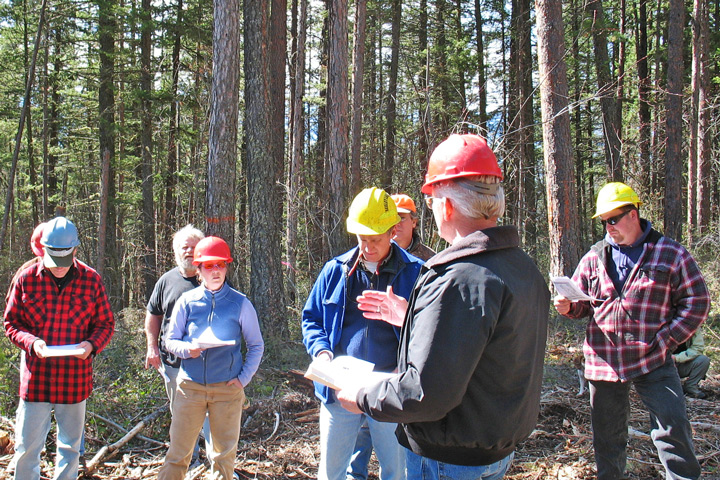Human Adaptation to Climate Change in the Face of Forest Megadisturbances
Human Adaptation to Climate Change in the Face of Forest Megadisturbances
Human Adaptation to Climate Change in the Face of Forest Megadisturbances
Program: Catalyst Grants
Program details » | All Catalyst Grants projects »

Photo credit: National Forest Foundation
Project Team
Paige Fischer - U-M School for Environment and Sustainability (PI)
Gretchen Keppel-Aleks - U-M College of Engineering, Climate and Space Sciences and Engineering
Seth Guikema - U-M College of Engineering, Industrial Operations Engineering
Bill Currie - U-M School for Environment and Sustainability
Matthew Hamilton - U-M School for Environment and Sustainability
External Partners:
Forests, which provide critical goods and services to society, will be greatly affected by changes in global precipitation and temperature patterns. Forest management and land-use decisions by humans will interact with climate-driven change, exacerbating or ameliorating hazards and risks. However, despite substantial investments in modeling global climate change and local vegetation response, little work has been done to incorporate knowledge about human influences into models of climate impacts on forests to date. This interdisciplinary team of researchers from social and natural science and engineering fields investigated the following actionable question: How can information about human behavior improve climate impact models to inform decision-making regarding adaptation?
A critical first step in investigating this question was identifying knowledge gaps and information needs. The team pursued the following objectives:
- Inventory the various ways that humans have been represented in models of climate impacts on terrestrial ecosystems;
- Evaluate these approaches for their potential application in forest systems; and
- Assess climate impact information needs among land management and socio-economic development organizations and agencies that seek to assist forest managers and forest-dependent communities with adaptation planning.
With a focus on the U.S. Great Lakes and Pacific Northwest regions, where downscaled climate models project increasing wildfire, insect, disease, storm and drought-related stress in forests, the team synthesized published research and research-in-progress and engaged decision-makers in discussions of current and potential future information needs. The work helped to develop longer-term research plans and collaborative relationships with partner organizations that bridge the gap between climate science research and the management needs of landowners and managers, policymakers, and the public.
This project received a $10,000 Emerging Opportunities Fall Catalyst Grant in 2017.